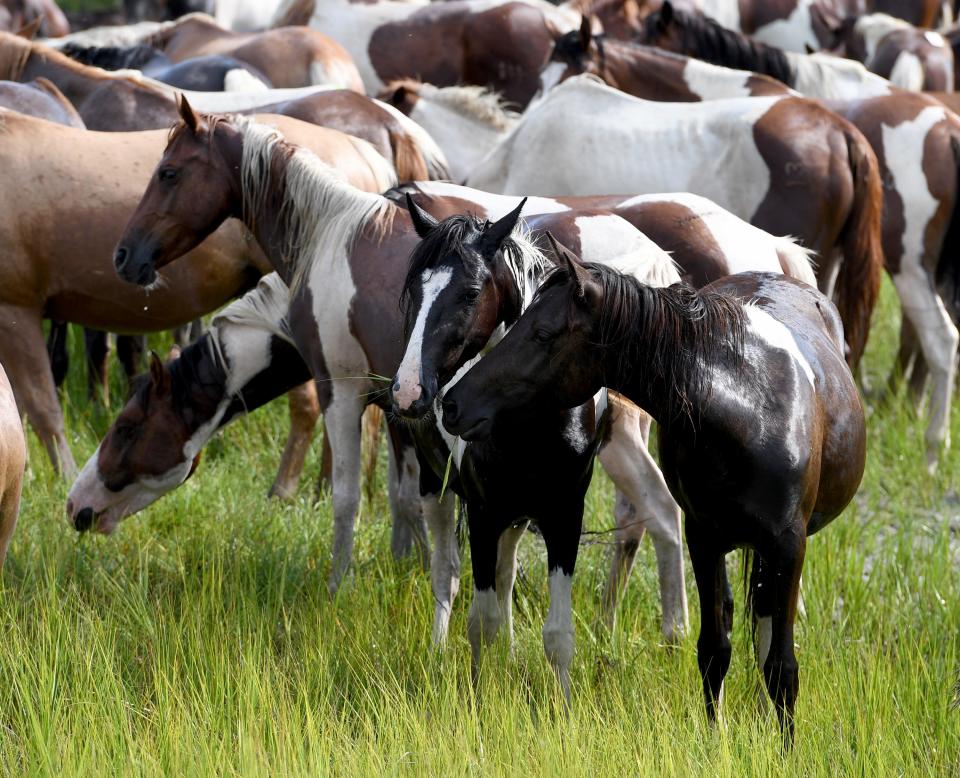Did Chincoteague ponies come from a Spanish shipwreck? Centuries-old tooth adds to legend
The origin of the Chincoteague ponies has boggled the minds of scholars for thousands of years, sparking debate along the way.
At the same time, these stocky, short-legged ponies with long, shaggy manes have captured the hearts of millions across the globe.
A weeklong celebration called Pony Penning takes place each year in their honor on Chincoteague Island, Virginia. Spectators gather to watch as the esteemed ponies glide across the murky channel and step ashore, onto the marsh, shaking water off their manes.
Those who partake in the celebration are intrigued by the long-standing mystery of the ponies.
Some, including Marguerite Henry, famed author of the 1947 children’s novel "Misty of Chincoteague," say the animals originated from horses that escaped the sinking of a Spanish galleon off the Virginia coast near 1750. Others believe they descended from livestock released to forage on the island by early settlers.

Recently, researchers re-examined a tooth fragment, found in 1980 in present-day Haiti during an excavation of the 16th-century town of Puerto Real. They found the specimen, originally thought to belong to a cow, actually belonging to a horse of southern European origin, according to a study published July 27 in the journal PLOS One. Mitochondrial DNA showed the tooth was closely related to the Chincoteague pony breed.
Nicolas Delsol, a Florida Museum of Natural History in Gainesville zooarchaeologist and coauthor of the findings, told Popular Science that historical literature indicates horses were boarded in southern Spain for the first expeditions to the area.
RELATEDHow Chincoteague Pony Swim and Penning Came About
MISTY OF CHINCOTEAGUE:Chincoteague Pony Swim 2022 returns to full glory. 'It gives you chills'
The specimen represents the earliest complete mitogenome of a post-Columbian domestic horse in the Western Hemisphere, the published study says.
Shedding some clarity on how horses moved into the Americans, this new DNA evidence give some credence to the shipwreck theory of the Chincoteague ponies.
Although the findings are said to have filled in a major gap, the mystery lives on.
Olivia Minzola covers communities on the Lower Shore. Contact her with tips and story ideas at ominzola@delmarvanow.com.
This article originally appeared on Salisbury Daily Times: New evidence of Chincoteague Ponies' origin uncovered in Haiti

